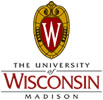Summer Hours for SSCC Computer Labs
Summer hours for the Social Science building 4218 computer lab will be 8:00-5:00 Monday - Friday. The 3218 computer lab will only be open for classes. You can request after-hours access by filling out a short form on SSCC's web site. Once your request has been processed (usually within two business days), you will be able to enter the lab with your University I.D. card and a PIN you designate.
How to Avoid Slow Logins to Winstat
Whenever you log in to Winstat, the server must copy over all your settings, known as your "profile." If your profile is large, logging in may take a long time. But you may be surprised to learn some of the things that are stored in your profile:
- All files on your desktop
- All files in My Documents
- Local copies of your email kept by email programs to improve performance
- Local copies of web files kept by web browsers to improve performance
We have always strongly recommended that you do not keep files on your Winstat desktop or in My Documents, because files in these locations are easily lost and are not backed up. But putting them on network drives instead (most likely U:) will also make logging into Winstat faster. In addition, we suggest that you use your own computer to read email or browse the web rather than doing such things on Winstat. That way those programs will not build up large "caches" of files that must be downloaded when you log in.
SSCC staff are exploring ways to automatically clean up Winstat profiles. But if it's taking you an unusually long time to log in and you'd like us to delete your profile so you can start fresh, just contact the consultant.
Tip: Use Condor to run Long Jobs or Multiple Jobs
The SSCC's Condor flock is a set of 30 CPUs dedicated to running statistical jobs, and if those fill, excess jobs will be sent to the Computer Science Department's Condor flock if possible. (CS does not have Stata, SAS, R or Matlab on their flock, so for the most part it can only run user-written jobs.) Members are welcome to submit up to 10 jobs at a time to Condor. Jobs will generally run significantly faster on Condor than on Winstat, and can run much longer than Winstat's 24 hour limit--members regularly run programs on Condor that take weeks to finish.
The Condor flock runs Linux rather than Windows but programs usually require only minor modifications, mostly to file locations. In fact, we have a web page for submitting Stata jobs to Condor so you can run Stata jobs on Condor without even having to log in to Linux.
So next time you're waiting for a job to finish on Winstat, or wishing you could run all your jobs at the same time, take a look at An Introduction to Condor and see if Condor is right for you.
(SoE members will need to request an SSCC Linux account before using Condor or other Linux resources. Contact the consultant if you're interested.)
Resources for Working from Home
Recent events have had a lot of people thinking about working from home, and the SSCC has many resources to make that possible.
The easiest is to log into Winstat. Simply visit wi.ssc.wisc.edu (ssc.education.wisc.edu for SoE members) and you'll have full access to your network drives and programs. Keep in mind that if everyone is working from home, we could have a shortage of access licenses and you may not be able to connect.
As an alternative, you can also connect to your work computer and use it almost as if you were in your office. You'll first connect to the SSCC network using VPN and then use Remote Desktop to log into your own PC. Performance probably won't be as good as Winstat, but it will be your own setup. (This is assuming your work computer is in the Social Science Building. People in other locations should check with their local IT staff.) Remote Desktop takes some planning because you need to set it up on your office PC before you can connect remotely from home.
If you just need files on the SSCC network, you can access them without logging into a remote computer. First connect to the SSCC network via VPN, then map your network drives so you can use them from home. Alternatively you can access them directly using SecureFX or another SFTP client. Of course if you're logging into Winstat anyway, you can simply drag files to the "C$ on Client" drive which is the local hard drive of your computer. Any of these solutions will be easier than emailing files to yourself, or physically moving them back and forth on flash drives.
You can also log into Linux servers from home. Just download and install X-Win32 and it will work just like on your work PC.
Tutorials for Learning Nvivo
QSR has released a comprehensive set of tutorials on using Nvivo 8. There are seven tutorials and all are free:
- Introduction to NVivo
- Setting up your project in NVivo
- Classifying your material into themes
- Capturing ideas and linking material
- Working in a team
- Exploring and visualizing your information
- Sharing your material and findings
Visit Nvivo's web site for more information.

